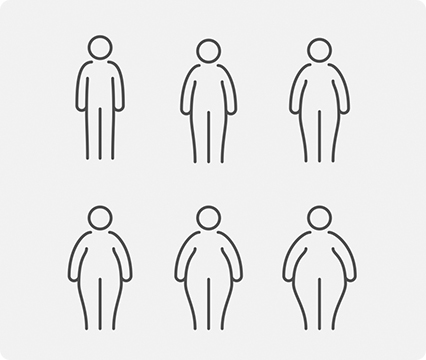Investigation of internalized weight-related stigma: Progression to dietary addiction and the role of stress.
When people internalize the stigma associated with their weight, they may become addicted to food as a coping method for the emotional pain that stigma produces. This dynamic is made worse by stress, which promotes turning to food as a coping mechanism. This study by Papatsaraki et al. (2024) examined the prevalence of Internal Weight Stigma (IWS) among adults in Greece, assessed the levels of food addiction, stress/anxiety, mental resilience, emotions, and positive life perspectives within this group, and investigated the relationships between these variables and both IWS and food addiction. The instruments used were the Yale Food Addiction Scale (YFAS), the Two-Factor Weight Bias Internalization Scale (WBIS-2F), the Depression Anxiety Stress Scale-21 (DASS-21), the Life Orientation Test (LOT), the Positive and Negative Affect Schedule (PANAS), and the Brief Resilience Scale (BRS). Participants (n = 376) filled out electronic questionnaires online. Analysis of the results revealed that participants’ average BMI was 26.3 kg/m2 (SD = 5.9 kg/m2). Of the participants, 28.2% were categorized as overweight and 21.0% as obese, with 46.8% falling within the normal weight range (18.5 ≤ BMI ≤ 24.9). A majority (63.1%) thought their weight was higher than the typical weight range. The majority of individuals had percentages of 67.3%, 64.9%, and 71.3% for stress, anxiety, and depression, respectively. While resilience showed negative relationships with stress, anxiety, depression, and negative emotions, it also showed good links with optimism and pleasant emotions. Furthermore, those who expressed more optimism also reported less stress, despair, and anxiety. The authors comment that their study draws attention to the complex aspects of mental health and emphasizes the need for a comprehensive understanding that takes sociological, psychological, and demographic issues into account. The findings highlight the need to promote positive body image and self-esteem and suggest potential intervention options to increase optimism and resilience and address problems like food addiction. [NPID: Weight-related stigma, mental well-being, stress, food addiction, internalized]
Year: 2024
 Navigation
Navigation






